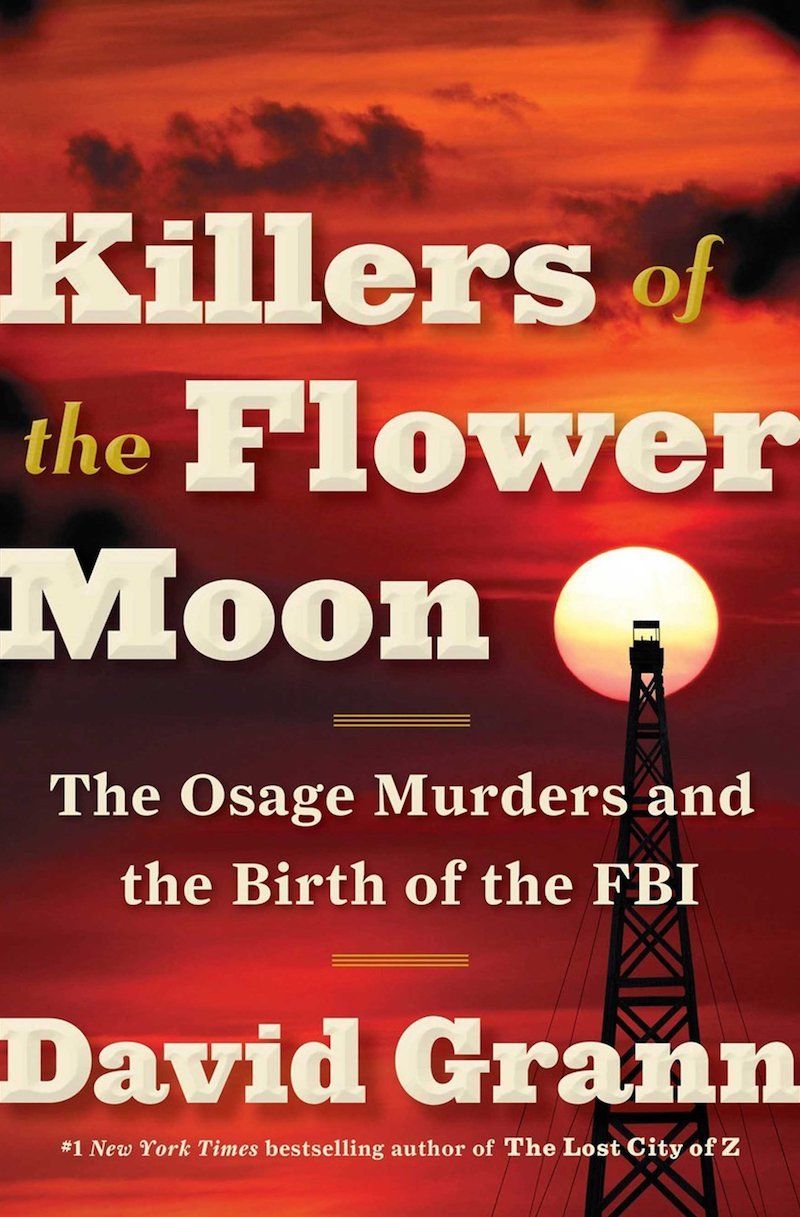Killers of the Flower Moon: The Osage Murders and the Birth of the FBI
As the unsolved murders piled up, the FBI under J. Edgar Hoover stepped in. The Osage murders were among Hoover's earliest major cases as director and his reputation was riding on their successful resolution. As we follow the undercover agents infiltrating the Osage reservation...

In the 1920's, the Osage tribe was the richest per-capita nation in the world. Relocated from their ancestral lands to a barren patch of Northern Oklahoma, the Osage discovered immense oil wealth beneath their feet. To secure their future, the Osage issued "head rights" to the oil that could not be sold, but only inherited by members of the tribe. But along with the riches, this bonanza brought a much darker force to the Osage nation. Grann's "Killers of the Flower Moon" follows the tragic fate of the Burkharts, an Osage family that saw its members killed off one by one under mysterious circumstances.
As the unsolved murders piled up, the FBI under J. Edgar Hoover stepped in. The Osage murders were among Hoover's earliest major cases as director and his reputation was riding on their successful resolution. As we follow the undercover agents infiltrating the Osage reservation, Grann traces the professionalization of crimefighting in colorful (and occasionally crooked) portraits of these sherrifs, Texas Rangers, Pinkerton agents, and early FBI agents. He includes some early oil history as well. Although the book starts off slowly, this middle part of the book fascinated me.
Ultimately, Hoover's men unveiled a chilling conspiracy. Grann follows up on their century-old detective work and claims to have found that the conspiracy reached far wider than the FBI ever thought. He ends the book by laying out his evidence for a massive pattern of American men marrying into the Osage tribe to secure head rights to the oil and then killing off their spouses. Do I buy it? I'm predisposed to disbelieve conspiracies and Grann didn't convince me. But still it's a hell of a story and there's a strong thread of truth in there. A fascinating and disturbing bit of American history that you won't find in your textbooks.
Grann has a few other books, mostly notably "The Lost City of Z" which was turned into a movie recently. I'm not sure I liked this book enough to pick up his other ones, but I could be persuaded.
Also, if you listen to the audiobook version of this, the first narrator is not good, but push through because the narrator for the second half is much better.
This book was part of my 2018 reading theme: "Crime and Punishment"